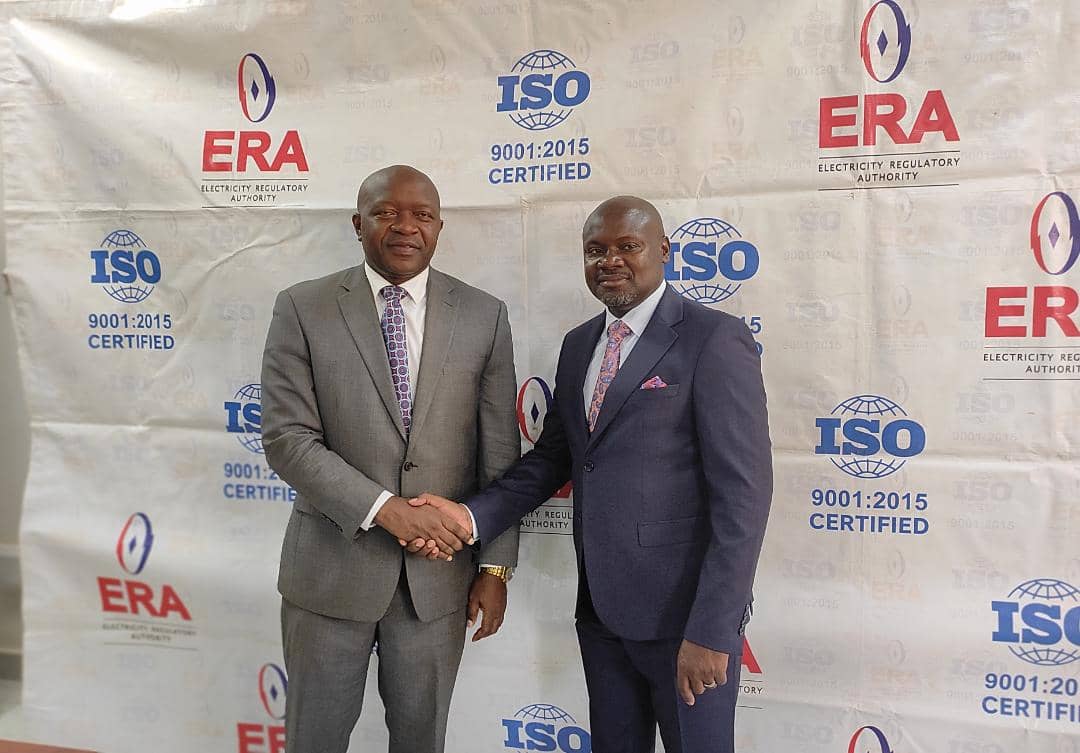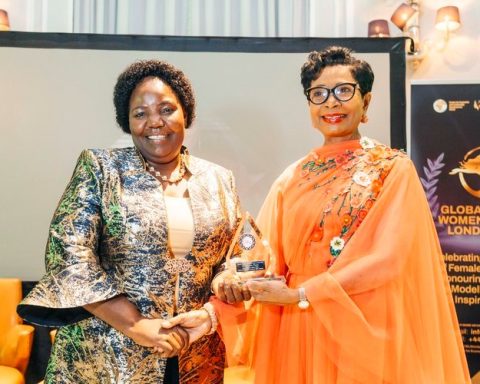The African Development Bank (AfDB) has injected a USD 595,350 joint technical assistance to the Electricity Regulatory Authority of Uganda (ERA) and the Energy and Water Utilities Regulatory Authority of Tanzania (EWURA) for the establishment of a Database Management System (DBMS) to digitalize the regulatory activities of these two regulatory authorities.
The Capital Times have learnt that the initiative is being implemented with grant funding from the African Development Bank through its hosted Korea-Africa Economic Cooperation (KOAFEC) Trust Fund.
While launching such a commendable digitalization initiative of the Electricity Regulatory Authority of Uganda (ERA) on Tuesday, April 2023, AfDB’s Country Manager Augustine Kpehe Ngafuan commended ERA for conceiving such an idea and thanked the project team that has worked with the Bank to develop it up to this stage for implementation.
“Indeed, this project couldn’t have come at a better time than now as the world is into smart technologies and systems across the electricity value chain for efficiency and integrity of processes and that has necessitated the need for regulators to digitalize their activities to keep abreast with these changing trends,” he said.
Ngafuan added that the initiative was born out of the Bank’s flagship Electricity Regulatory Index for Africa (ERI) report, which assesses regulatory frameworks and the performance of regulators in Africa, identifies regulatory gaps, and bottlenecks and make recommendations to address them.
“I am reliably informed that ERA has consistently been ranked the number 1 among regulators in over 40 African countries assessed by the ERI since its inception in 2018. Let me congratulate ERA for this achievement and urge them not to rest on their oars but to continue that trajectory. This digitalization initiative being launched today will further enhance the transparency and stakeholder participation in the regulatory processes and activities of ERA as data become readily accessible. ERA will be able to monitor, collect, analyze, and disseminate power sector regulatory data and information effectively, timely and proactively,” the AfDB Country Manager said.
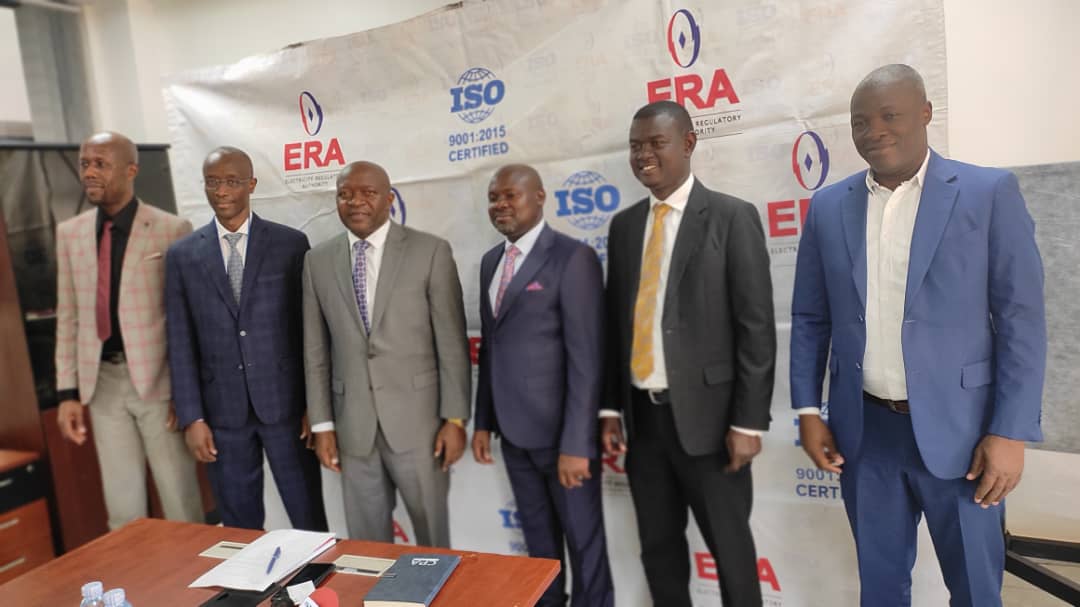
Mr. Ngafuan further said that the digitalization initiative underscores the Bank’s efforts to support Regional Member Countries to improve the quality and effectiveness of energy regulation using bespoke solutions to address identified regulatory bottlenecks and create an enabling environment that can attract private investment into the energy sector. It also aligns with the Bank’s initiatives on ensuring the availability and accessibility of energy data to investors and stakeholders to better engage the sector.
“Ladies and Gentlemen, I am delighted to mention that the Bank is currently implementing similar digitalization initiatives in many other countries. In addition to this ERA project, the Bank is funding the implementation of similar initiatives in Ghana, Tanzania, Nigeria, Liberia, and Guinea. At the regional level the Bank is deploying similar digital platforms for regional regulatory entities in COMESA, ECOWAS, SADC and ECCAS as part of a regional electricity regulatory harmonization initiative across these regions aimed at facilitating regional electricity trade and exchanges as envisaged by the African Single Electricity Market (AfSEM) initiative of the African Union,” he added.
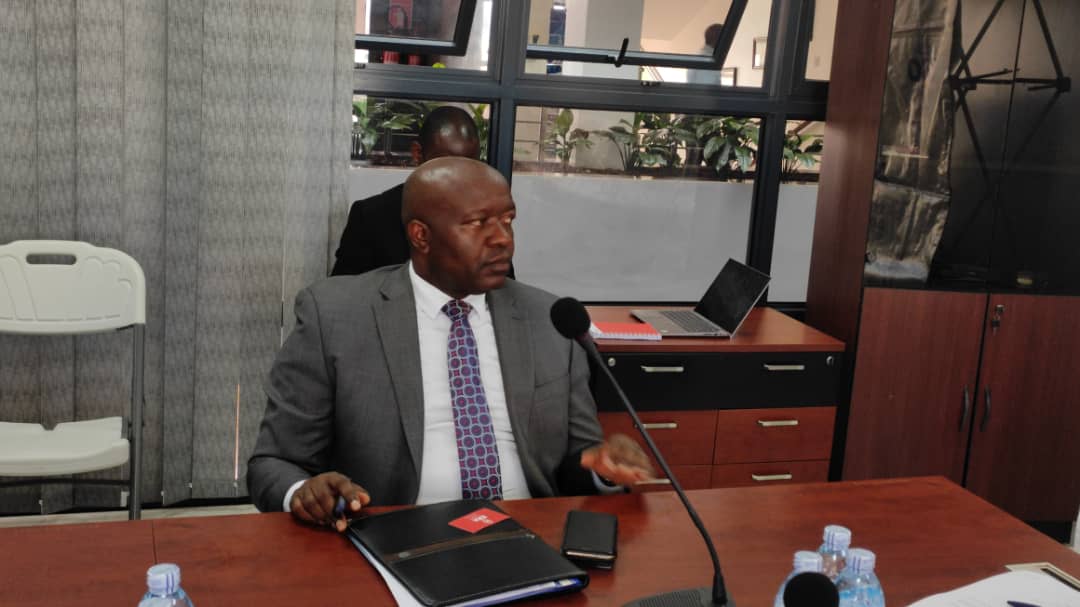
The AfDB Uganda Boss reiterated and affirmed the Bank’s commitment to continue supporting soft infrastructure initiatives such as this project to complement the hard infrastructure in the energy sector such as power plants and transmission lines towards the attainment of universal access to electricity in Africa as envisaged under the Bank’s New Deal on Energy for Africa (NDEA) strategy and entreated all sector stakeholders in Uganda to support this initiative for speedy and effective implementation to achieve the intended objectives.
Julius Wandera the Director of Corporate and Consumer Affairs at ERA commended AfDB for its support in the development of Data Base Management systems in the regulatory formation.
“It’s a big funding of slightly below USD 600,000 that the AfDB has committed to this project to support Uganda and Tanzania. So it’s not only happening here. It has happened elsewhere like in Ghana and it has eased its regulatory systems, so we are picking a leaf from the Ghanaians and how they did it to register the same success here,” said Wandera.
He added that issues to do with reporting and structure consultancy have been enhanced to build a complete structure of managing information for purposes of transparency, stakeholder engagement and easing information by even scholars and academics.
“Some electricity consumers think that when you lodge a complaint, you will not get a response, [their phones are busy, you try online and nobody shows up] but with the system being developed, once you lodge a complaint, it is going to be simultaneously seen by the regulator, utility and you also see how your complaint is being managed and handled in real-time. We find this as a very big plus for the majority of electricity consumers,” Wandera said.
He added that with the development of this digital management system, accessing reports of utilities such as UMEME, WENRECO, UEDCL, and UETCL among others is going to be eased.
“When you request for a report, say UETCL submits a report, all responsible people are able to see that. In that way, there’s nothing like I sent a report, you didn’t receive. That’s going to be history,” Wandera added.
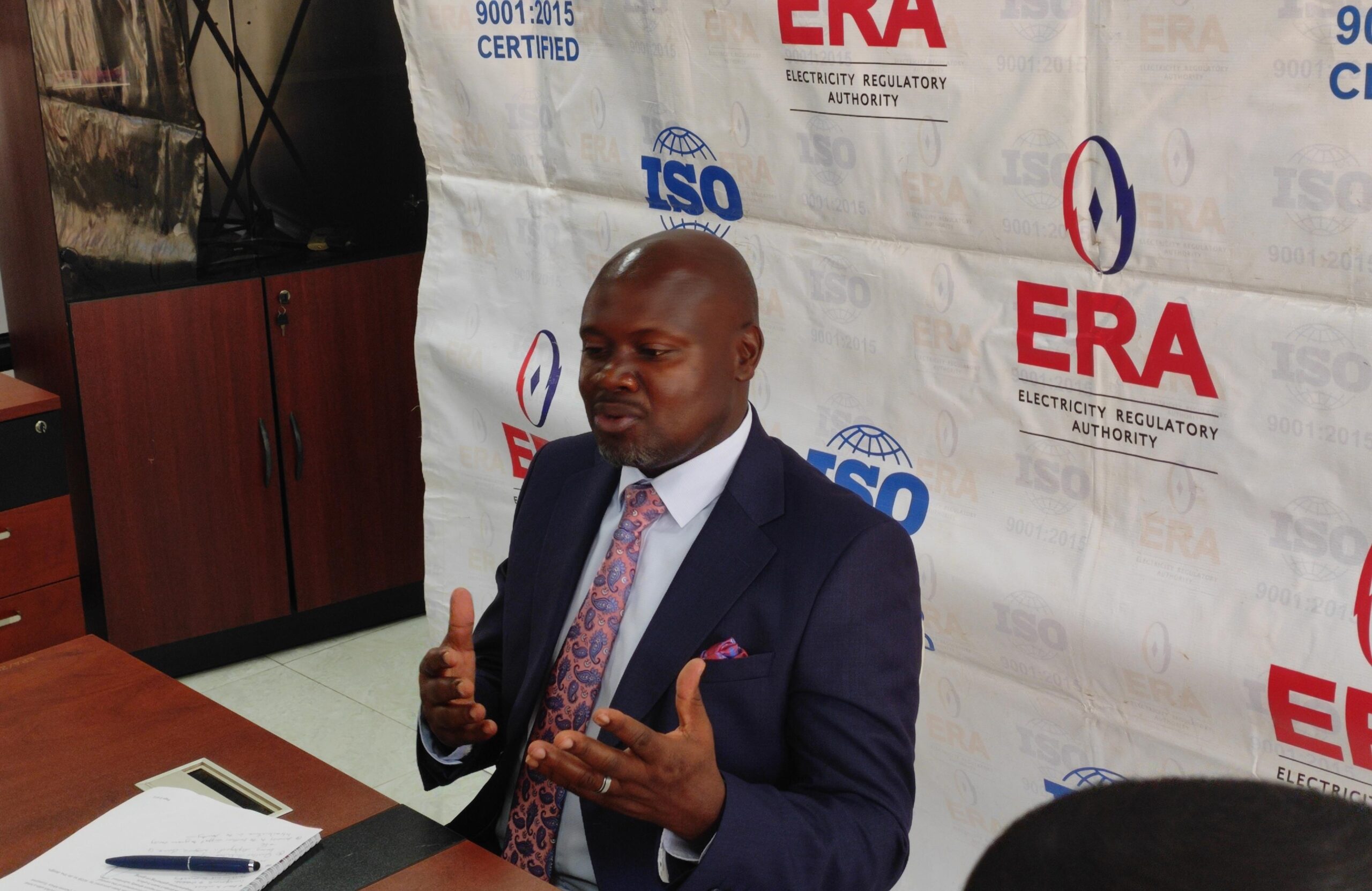
For the fifth consecutive year, Uganda’s electricity sector is Africa’s best regulated across a number of key metrics, according to the African Development Bank’s 2022 Electricity Regulatory Index. Other strong performers include East African neighbours, Kenya and Tanzania, as well as Namibia and Egypt.
The 2022 Electricity Regulatory Index, an annual report, covered 43 countries, up from 36 in the previous edition, and assessed their impact on the performance of their electricity sectors.
The index covered 3 countries in the North African region; 14 in West Africa; 6 in Central Africa; 7 in East Africa; and 13 in the Southern Africa region. Uganda topping the rankings consecutively for five years comes as no surprise to many, as the regulator spends significant time on consultation and analysis, including regulatory impact assessments of key interventions and follow-through to ensure full implementation.
15 total views , 1 views today

